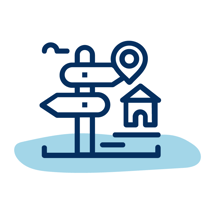Taking photographs during a home inspection is highly recommended for several important reasons:
Top 10 Things to Check Prior to Closing On a New Home
When buying a home, there are several crucial aspects you should thoroughly check to ensure you're making a wise investment and a sound decision. Here are the most important things to check before buying a home:
-
Location, Location, Location:
- Neighborhood: Investigate the neighborhood's safety, amenities, schools (if you have or plan to have children), proximity to work, public transportation, and overall ambiance. Visit at different times of the day to get a complete feel for the area.
- Future Development: Check local zoning laws and potential upcoming developments in the area. This can affect your property's value in the long run.
-
Structural Integrity:
- Foundation: Look for cracks, unevenness, or water damage.
- Roof: Check for its age, condition, and the quality of shingles.
- Walls, Ceilings, and Floors: Inspect for cracks, water stains, or signs of shifting.
-
Home Inspection:
- Hire a professional home inspector to assess the overall condition of the house. This includes checking electrical systems, plumbing, HVAC, insulation, and structural elements. Consider the inspector's report seriously; it can reveal hidden issues.
- Pest Inspection: Have a pest inspection to check for termites, rodents, or other pest-related problems.
-
Utilities and Appliances:
- Heating, Cooling, and Plumbing: Ensure all these systems are working efficiently.
- Appliances: Check the condition and age of appliances that come with the house.
-
Environmental Factors:
- Natural Hazards: Investigate if the property is prone to natural disasters like floods, earthquakes, or wildfires.
- Soil Quality: If applicable, check soil quality for stability and drainage.
-
Legal and Financial Considerations:
- Title Deed: Verify the property's ownership and ensure there are no legal disputes or liens against it.
- Homeowners Association (HOA) Rules: If the property is part of an HOA, understand their rules, fees, and restrictions.
- Property Taxes: Understand the property tax history and how much you'll be paying annually.
- Insurance: Check the cost and availability of homeowners insurance, especially in disaster-prone areas.
-
Resale Value and Market Trends:
- Resale Potential: Consider the property's potential for resale. Factors like location, neighborhood, and future development can influence this.
- Market Trends: Research the local real estate market trends. A buyer's market (where there are more homes for sale than buyers) can give you negotiating power.
-
Costs and Budget:
- Total Costs: Consider all costs, including the down payment, closing costs, property taxes, insurance, utilities, and potential renovation or repair costs.
- Budget for Repairs: Factor in the costs of immediate repairs or renovations the property might need.
-
Future Growth and Development:
- Infrastructure: Research planned infrastructure developments like new roads or public transportation that could affect the property's value.
- Economic Outlook: Consider the economic stability and job opportunities in the area, as they can influence property values.
-
Gut Feeling and Future Planning:
- Trust Your Instincts: If something doesn't feel right, investigate further or reconsider your decision.
- Future Planning: Consider your long-term plans. Will this home suit your needs in the next 5, 10, or 20 years?
Buying a home is a significant investment, so it's essential to do your due diligence and consider all these factors carefully before making a decision. Consulting with a real estate agent and financial advisor can also provide valuable insights during this process.
.png?width=50&name=Business_Plan_Graphic%20(64).png)


